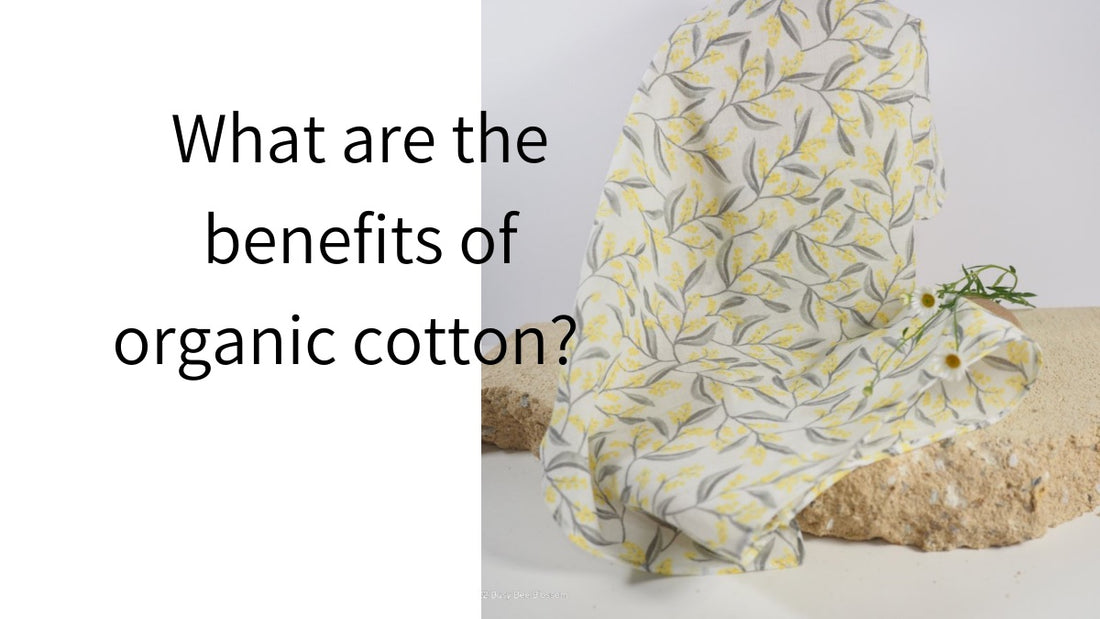Small scale, handmade organic cotton face cloths
One of the things I like to do to relax at home is sewing. It allows me to be creative and smile when I've finished a project. A happy customer also is the best feeling.
In today’s world of mass produced wares, a little gentleness can go a long way. That’s why I have chosen an organic fabric that’s soft and gentle on sensitive skin. It’s a perfect complement to my organic Cleansing Bar Soaps.
This time I have chosen 100% organic cotton muslin fabric with a print of wattle branches and leaves. It is fine, soft and gentle. To start with, I wash the fabric and then cut each piece. I then sew a rolled hem to finish the edges of the fabric. And zig zag stitch my cotton logo labels on as a finishing touch.
To use an Organic Cotton Muslin Face Cloth, dampen with warm water, pat Facial Cleansing oil or a Cleansing Bar Soap onto skin and wipe away grime. My organic cotton muslin face cloth is gentle enough for all over your body.
What are the advantages of organic cotton?
Global Organic Textile Standard (GOTS) certifies organic textiles by setting a high standard for cotton producers around the World. To meet the standard GOTS applies some tough criteria.
GOTS has a goal of making organic textiles:
- a part of everyday life
- while enhancing people’s lives and the environment
- Workers get a fair wage. As well, workers should have money left over after paying for their basic needs. Workers are not treated unfairly by their employers. No unreasonable deductions are taken from workers.
- Crop rotation is a must. When crops are planted in the same field again, the soil can become depleted and overused. Crop rotation supports food security so that people don’t go hungry.
- Organic farming doesn’t use harmful pesticides or synthetic fertilisers. Harmful chemicals and pollution are not good. Workers need to safe from harmful chemicals too.
- Child labour is not allowed. Children need to go to school. Wages are fair and support workers to send their kids to school.
- No discrimination of people. Everybody is equal in the end to end textile production.
- Workers have safe drinking water and accommodation, if living away from home is required of their work.
- Energy consumption and conservation is monitored and maintained.
- Economic growth flows from increased demand for eco-friendly production of organic textiles. GOTS encourages good practices in production and processing of organic textiles.
- Innovation in production of textiles. No harmful production means that producers need to find better ways of production.
- Workers are hired with no discrimination.
- Lives are better when there are no hazardous chemicals around Communities. Nature is allowed to be the way it should be.
- GOTS reqires textiles to have at least 70% organic raw material in the end product. Responsible production is good for the manufacturer and the consumer.
- Carbon is captured in the soil. Land is used responsibly by not burning waste or filling land with waste.
- No harmful chemicals are spilled into the surrounding area or waterways. Temperature and oxygen in water is important and needs to be preserved. Water is a valuable resource and is precious.
- Packaging is made using certified organic or recycled materials. Organic farming helps to maintain biodiversity.
- GOTS certified workplaces don’t punish their staff and don’t take part in corrupt activities.
- GOTS works with all organisations in harmony.
What are the disadvantages of organic cotton?
One disadvantage of organic cotton is that it is less available than regular cotton. Organic cotton fabric is generally a bit more costly than regular cotton. There is more effort and cost in growing an organic textile.
Chemicals used in growing and processing regular cotton can be irritating for sensitive skin. As a safeguard, always wash regular cotton garments first before placing next to your skin.
How does Australia grow cotton and where is it grown?
Australia grows cotton in NSW and Southern Queensland and exports a large quantity of cotton around the World. Cotton makes a great contribution to our strong rural communities and economy.
GOTS certified organic cotton is grown in many other countries around the World. Certified suppliers in Australia are traders in organic textiles, rather than growers. Australia grows cotton using The Better Cotton Standard System. It ensures that cotton is grown in an environmentally and responsible way. The use of pesticides and water for cotton crops has reduced over time in Australia. We have made massive improvements and more will come from Towards 2029. We still use pesticides in cotton production in Australia and are striving ahead with The Better Cotton Standard System.
We consumers make the choice to purchase organic farmed products. I choose organic textiles in my Organic Cotton Muslin Face Cloth because it's soft and so nice on my skin. And I feel that organic products are a good choice for the environment and communities. Organic fabrics are a little more difficult to source so I have used a regular cotton muslin fabric too. Both work well on sensitive skin and are reusable too. They perfectly compliment my natural botanical skincare range.
Please check out my Textile collection for more details. There are many products to choose from, without hurting our World, while being gentle and sustainable.

